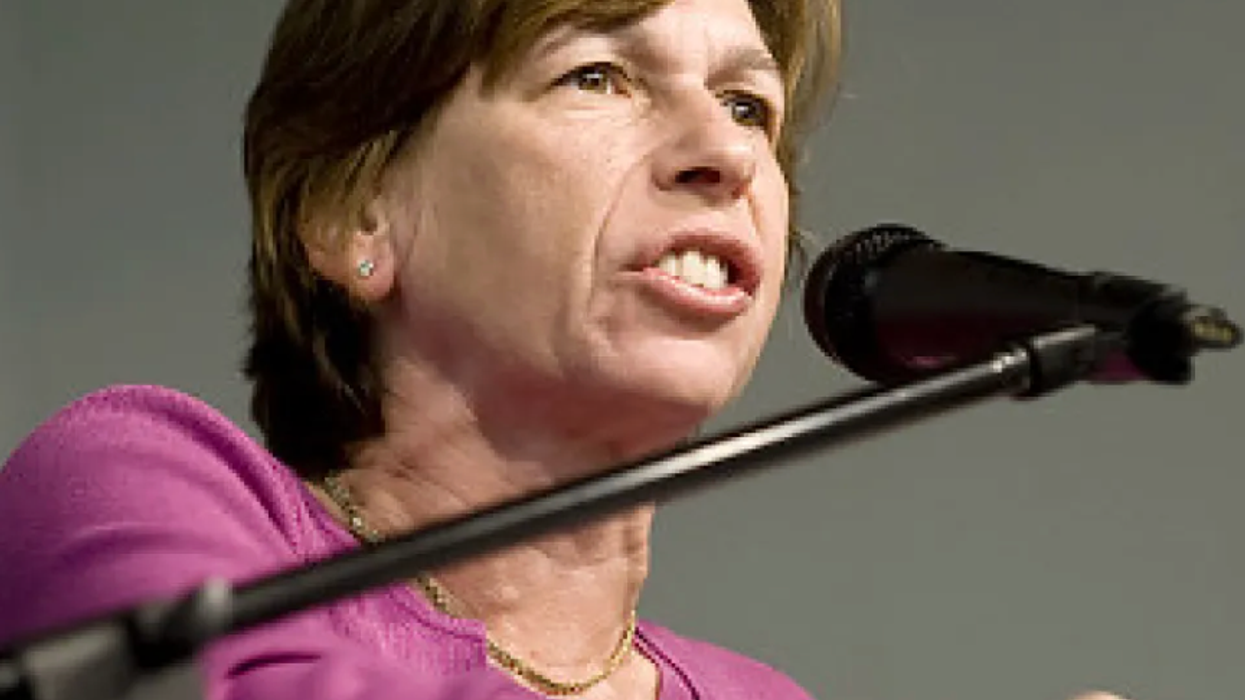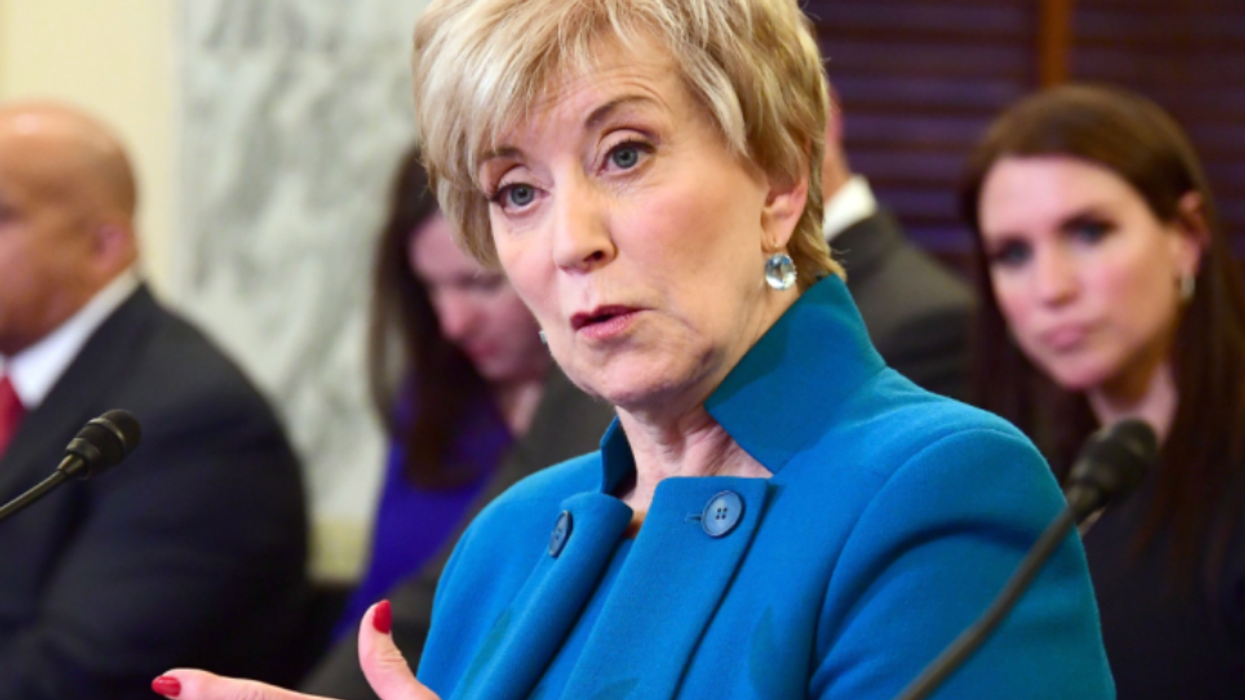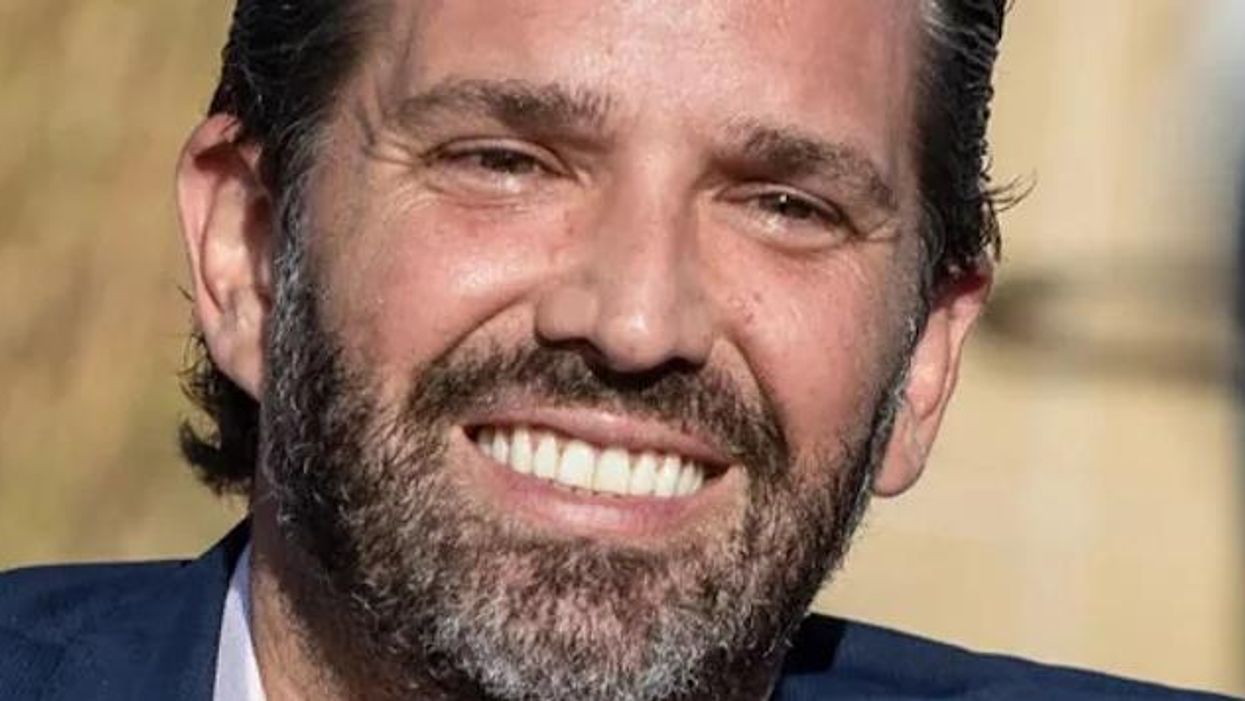In Her New Book, Teachers Union Leader Explores 'Why Fascists Fear Teachers'
With nearly every day presenting more evidence of America’s eroding democracy, it’s understandable to wonder whether a countervailing force will come forward to ensure—to paraphrase Lincoln—that the government of, by, and for the people will endure.
Mass protests with catchy themes like “Hands Off” and “No Kings” seem to offer more symbolism than substance. Court cases often fail to uphold key democratic provisions such as voting rights and press freedoms. The political party representing opposition to the current “anti-democratic” presidential regime is more unpopular than ever. Prominent political experts caution that campaigning to protect and uphold democracy isn’t a winning strategy. And leading historians warn that the country is sliding toward fascism.
But a new book suggests that a powerful force for democracy and against fascism is indeed at work every day, despite all that’s being done to undermine it. And it’s not in the halls of Congress. It’s in public school classrooms.
In her new book, Why Fascists Fear Teachers: Public Education and the Future of Democracy, American Federation of Teachers President Randi Weingarten, makes the case that democracy doesn’t only happen when political candidates vie for office, citizens post their opinions on editorial pages and social media, and voters show up at the ballot box. Democracy is also at work, she explains, when public school teachers engage in the seemingly mundane tasks of educating students.
Engaging in this work, Weingarten contends, has always made teachers a target for dictators—would-be and otherwise—who seek to undermine democracy and impose autocratic rule. Drawing from history, from stories of frontline teachers, and from her experiences as a former teacher—a champion for educators and a lightning rod for criticism from politicians in both political parties—Weingarten argues that public schools and teachers are “inextricably linked” with protecting democracy and ensuring its enduring presence in the nation’s politics and governance.
Weingarten’s case comes across most vividly in her examples of teachers who resisted fascist dictators in 20th-century Germany. In 1940, when Adolf Hitler’s Nazi army invaded Norway, teachers were among the frontline resistors to the takeover, she recounts. They refused to join a Nazi imposed teacher corps, even when German soldiers came into their schools and beat them. And when the Nazis eventually closed schools, teachers kept teaching students in secrecy.
In Poland, when Nazi forces shut down an orphanage for Jewish children run by Henryk Goldszmit, a Polish Jew who became a teacher and prominent author of children’s books under the pen name of Janusz Korczak, Goldszmit continued to teach his students, staying with them even when they boarded trains to the concentration camp, after which he and his students were never heard from again.
Another educator in the Nazi resistance was Lucie Aubrac, a French teacher who helped publish an underground newspaper and delivered communications and packages for the French Resistance.
Weingarten also tells of dedicated teachers in the U.S. during the Jim Crow era of racial segregation who protested, with their students, the appalling conditions in schools Black children attended. Their advocacy on behalf of their students helped bring about the legal actions that would eventually lead to the Supreme Court’s Brown v. Board of Education ruling that made racially segregated schools illegal.
Weingarten also recounts how former President Lyndon Johnson drew inspiration and insights from his experiences as a schoolteacher in a rural, impoverished community in Texas to press for his vision of a “Great Society” during his presidency. His political leadership eventually led to the enactment of numerous landmark progressive legislations, including the Civil Rights Act of 1964.
In the present day, Weingarten writes about Clare Berke, an English teacher in Washington, D.C., who runs a journalism class where students report about real-world events and people. The students’ reports often become national stories. She tells of Jeff Adkins-Dutro, a teacher and local AFT union leader in Peoria, Illinois, who brought together leaders from local businesses and the community to create an integrated system of career and technical courses to ensure students have career opportunities once they graduate high school.
And she recounts how Lillian Keys, a teacher in rural McDowell County, West Virginia, left her community to attend a university and earn her degree, but then returned to her hometown to teach in a community school that provides the county—which struggles with poverty, homelessness, and drug addiction—with education programs and nutritional support, healthcare, career education, and other student and family services.
What makes teaching an inherently democratic act, according to Weingarten, is that it involves creating a shared, public space that invites all children—regardless of race, income, religion, and ability—to engage in learning together, unencumbered by the prejudices and social hierarchies that fascism imposes.
Teachers impart essential knowledge and skills to their students, such as the ability to communicate effectively, solve problems, and think critically about news and information—abilities that run counter to top-down, autocratic government control.
Teachers also create opportunities for their students by encouraging them to pursue their interests and dreams and by providing programs and courses of study that prepare them for a future they, not government officials and big businesses, imagine for themselves.
And teachers create agency, not only for themselves, but also for others, by organizing labor unions and other cooperatives and supporting democratically governed efforts to press for societal advantages, such as fair wages, positive working conditions, and government funding for public services—things that a fascist system beholden to billionaires abhors.
“Fascists and autocrats fear what teachers do because they know their brand of greed, hierarchy, and extremism cannot survive in a democracy of diverse, educated citizens,” Weingarten writes, so the “authoritarian playbook” always includes efforts to destroy the credibility of teachers and dismantle public schools.
It would be good for other factions claiming to form the resistance to fascism to recognize the power teachers wield and to build strong alliances with them. But this is not always the case, as Weingarten alludes to when she mentions “neoliberal Democrats who have intentionally or unwittingly aided the right in their agenda to destroy public schools.”
In addressing that faction, Weingarten briefly mentions prominent Democrats who have promoted a market-based approach to education policies, such as Arne Duncan, the former CEO of Chicago schools and former secretary of education under President Barack Obama. She calls Duncan a “prime example” of someone who “bought into the idea that public schools would miraculously work better if they were run like corporations.”
And while she roundly criticizes the rollout of school vouchers and hails their defeat in states such as Nebraska and Kentucky, her take on charter schools, a darling of the neoliberal agenda, is more nuanced. She recalls her previous support for the idea of charters but also expresses her disappointment that charters often lack accountability, “pick and choose” their students, and operate “like businesses” more focused on market competition and profit rather than the needs of children and their education.
Because of her nuanced take on charter schools, ardent supporters of public education might come away dissatisfied that Weingarten doesn’t name more names in the neoliberal faction and highlight more of the actions they’ve taken to prepare the ground for right-wing factions to privatize education.
But clearly, the aim of the book is to build solidarity among opponents of fascism rather than promote intra-party factionalism at a time when that solidarity seems more important than ever. Her call for this solidarity makes the book a good read for those who may not closely follow education policy and politics but who welcome some hope and encouragement that they are not alone in their resistance to autocracy and are allied with a deep and broad coalition that includes millions of practicing educators and public school employees.
Why Fascists Fear Teachers is also a much-needed reminder of why the United States, since its founding, has made public schools fundamental to the well-being of its people and the success of the nation. During a time when prominent Republicans are calling for public education’s demise, Democrats often respond with vague, uninspiring arguments about why public schools are needed to overcome inequality or economic competitiveness instead of rousing voters to a cause that goes back to the origins of the country. For this reason, those who follow political rhetoric will want to see how Democrats, who are ramping up their campaigns for the 2026 midterm elections, take lessons from Weingarten’s book to heart.
This article was produced by Our Schools.












